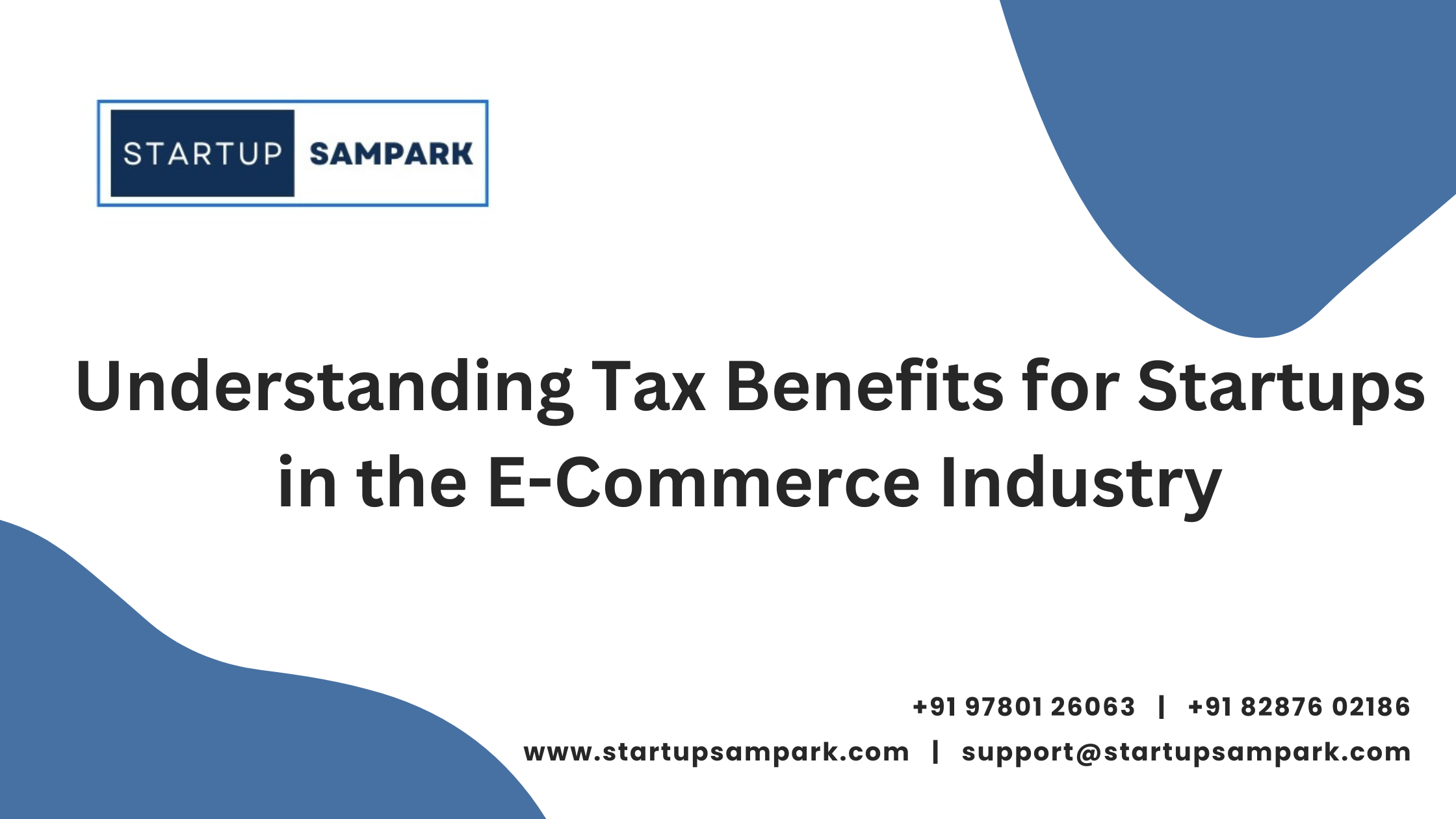Understanding Tax Benefits for Startups in the E-Commerce Industry
Introduction to Tax Benefits for E-Commerce Startups
The Indian government offers several tax benefits to encourage entrepreneurship, particularly in the e-commerce industry, which has experienced significant growth in recent years. Startups registered under the Startup India initiative can avail of a range of tax exemptions aimed at reducing financial burdens and fostering growth. These benefits are designed to enhance profitability, support expansion, and enable startups to compete in a dynamic market. Understanding and leveraging these tax benefits is essential for e-commerce businesses to optimize their financial planning and reinvest in innovation and operations.
Tax Holiday Under Section 80-IAC
One of the most significant tax benefits for e-commerce startups is the tax holiday under Section 80-IAC of the Income Tax Act. Startups recognized by the Department for Promotion of Industry and Internal Trade (DPIIT) can avail of a 100% tax exemption on profits for three consecutive years out of the first ten years of incorporation. This benefit allows e-commerce startups to reinvest their profits into scaling their operations, improving technology, and enhancing customer experience. To qualify, the startup must meet specific criteria, including annual turnover not exceeding ₹100 crores during any financial year.
-
 Startup Registration (DPIIT Recognition)₹8,850.00
Startup Registration (DPIIT Recognition)₹8,850.00
Exemption on Angel Tax
The exemption from angel tax is another critical advantage for e-commerce startups. Under Section 56(2)(viib) of the Income Tax Act, startups are protected from tax on capital raised through the issuance of shares at a premium. This exemption applies to DPIIT-recognized startups and is aimed at encouraging investments from angel investors and venture capitalists. For e-commerce startups, which often require significant initial funding for technology, inventory, and marketing, this exemption reduces the tax burden and makes fundraising more appealing to potential investors.
Goods and Services Tax (GST) Benefits
E-commerce startups benefit from simplified GST compliance under the government’s initiatives to ease regulatory burdens. The introduction of the GST composition scheme, which allows small businesses with annual turnover up to ₹1.5 crores to pay a lower tax rate, can be advantageous for emerging e-commerce startups. Furthermore, input tax credit under GST enables startups to claim credits on taxes paid for business purchases, such as inventory and software subscriptions. This mechanism reduces the overall tax liability and helps e-commerce startups maintain competitive pricing while improving cash flow management.
R&D Incentives and Deductions
E-commerce startups investing in research and development (R&D) to enhance their platforms, adopt new technologies, or improve logistics can benefit from R&D tax incentives. Under Section 35(2AB) of the Income Tax Act, businesses can claim deductions of up to 150% on expenditure incurred for R&D activities. For e-commerce companies, which rely heavily on technological innovation, this deduction can significantly offset the cost of developing cutting-edge solutions such as AI-driven recommendations, blockchain for secure payments, or advanced analytics tools. Leveraging these deductions supports continuous innovation and operational excellence.
Capital Gains Tax Exemptions
Startups in the e-commerce sector can also benefit from capital gains tax exemptions under certain conditions. Section 54EE of the Income Tax Act allows exemption on long-term capital gains if the proceeds are invested in specified funds notified by the government. Additionally, under Section 54GB, individuals or HUFs can claim exemption on capital gains arising from the sale of residential property if the proceeds are invested in a DPIIT-recognized startup. These provisions incentivize entrepreneurs to reinvest their gains into their startups, supporting growth and fostering long-term stability in the competitive e-commerce landscape.
Startup, India
-
 Startup Registration (DPIIT Recognition)₹8,850.00
Startup Registration (DPIIT Recognition)₹8,850.00















Post Comment